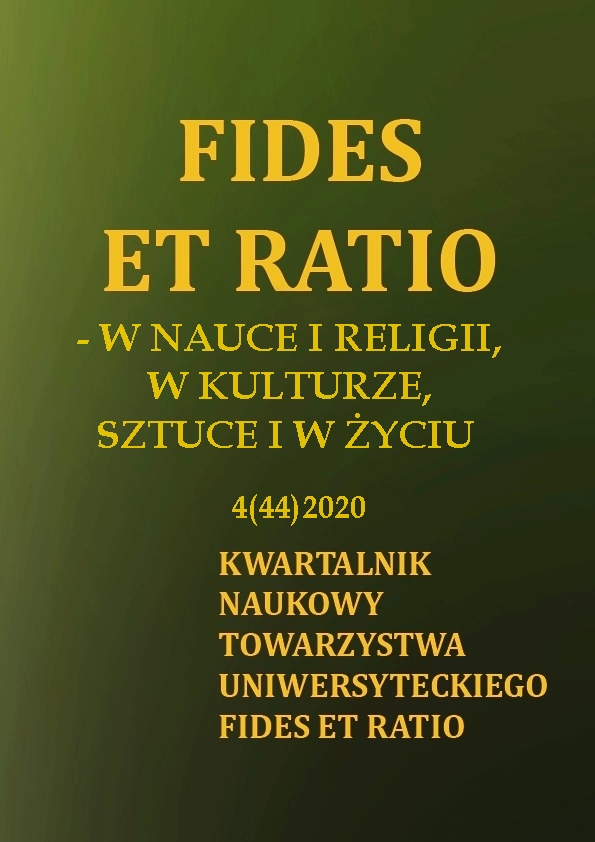Abstract
Abstract: The aim of the study was to analyse values important to the students of the University of Physical Education in Warsaw. The survey was conducted among 102 students of first-cycle and second-cycle studies (51 women and 51 men) aged between 18 and 26 years (M=20.941; SD=2.029). Differences between groups of basic values were analysed using the Mann-Whitney and Kruskal-Wallis U test. A standardized tool (Scheler Value Scale SVS) was used. The results showed significant differences between vital values (Z=-2.936; p=.003), moral values (H=9.386; p=.025) and sacred values (H=7.829; p=.049). Differences in the study groups show the expected trend related to the current developmental period of young people and the field of study.
References
Behets, D. (2001). Value Orientations of Physical Education Preservice and Inservice Teachers, Journal of Teaching in Physical Education, 20 (2), 144-154. https://doi.org/10.1123/jtpe.20.2.144.
Brzozowski, P. (1995). Skala Wartości Schelerowskich — SWS [Schelerian Values Scale SWS.] Warsaw: PTP, 7.
Demel, M. (1973). Szkice krytyczne o kulturze fizycznej [Critical sketches on physical culture.] Warsaw: Sport i Turystyka, 38.
Elżanowska, H. (2012). Międzypokoleniowa transmisja wartości w rodzinie [Intergenerational transmission of values in the family.] En O. Gorbaniuk, O. Kostrubiec- Wojtachnio, B. Musiał, & D.Wiechetek (Eds.), Studia z Psychologii w KUL, 97-114, Lublin: KUL. Available at https://www.kul.pl/files/55/Stud_psych_18-2012_Elzanowska.pdf
Evans, J. (2012). Physical Education as porn! Physical Education and Sport Pedagogy, 18 (1), 75-89. https://doi.org/10.1080/17408989.2011.631002.
Garrett, R., Wrench, A. (2007). Physical experiences: primary student teachers' conceptions of sport and physical education. Physical Education and Sport Pedagogy, 12 (1), 23-42. https://doi.org/10.1080/17408980601060234.
Görgüt, I., Tutkun, E. (2018). Views of Physical Education Teachers on Values Education. Universal Journal of Educational Research, 6 (2), 317-332.
Gullu, M. (2016). Examining the Values of Students in the Physical Education and Sport Departments. Educational Research and Reviews, 11(19), 1812-1822. Available at https://eric.ed.gov/contentdelivery/servlet/ERICServlet?accno=EJ1117285.
Harvey, S., Kirk, D., O’ Donovan T.M. (2011). Sport Education as a pedagogical application for ethical development in physical education and youth sport. Sport, Education and Society, 19(1), 41-62. :https://doi.org/10.1080/13573322.2011.624594.
Jung, H., Choi, E. (2014). The importance of indirect teaching behaviour and its educational effects in physical education. Physical Education and Sport Pedagogy, 21(2), 121-136.
Kirk, D. (2013). Educational Value and Models-Based Practice in Physical Education. Educational Philosophy and Theory, 45 (9), 973-986.
Klomsten, A.T., H.W. Marsh, Skaalvik, E. M.(2005). Adolescents’ Perceptions of Masculine and Feminine Values in Sport and Physical Education: A Study of Gender Differences. Sex Roles, 52 (9/10), 625–636. Available at https://link.springer.com/article/10.1007/s11199-005-3730-x.
Koh, K.T., Ong, Sh. W., Camiré, M. (2014). Implementation of a values training program in physical education and sport: perspectives from teachers, coaches, students, and athletes. Physical Education and Sport Pedagogy, 21 (3), 295-312.
López-Pastor, V.M., Kirk, D., Lorente-Catalán, E., MacPhail, A., Macdonald, D. (2012). Alternative assessment in physical education: a review of international literature. Sport, Education and Society, 18 (1), 57-76. https://doi.org/10.1080/13573322.2012.713860.
Nikiel, T. (2009). Interpretacja wartości a rozumienie ideału dobra moralnego [Interpretation of values and understanding of the ideal of moral good.] Studia Psychologica, 9, 201-210.
Nowocień, J. (2014). Olimpizm i fair play jako źródło wartości w nowoczesnym procesie edukacji [Olympism and fair play as a source of value in the modern education process.]En K. Hądzelek, M. Rejf, H. Zdebska-Biziewska & R. Żukowski (Eds.), Czysta gra. Fair Play, 198-202), Cracow: Fall.
Ostrowska, K. (2004). W poszukiwaniu wartości [In search of value.] Kraków: Rubikon, 10-25.
Shaw, K. (2006). Traditional society and modern teaching. Teacher development, 2 (2): 179-191. https://doi.org/10.1080/13664539800200053.
Smykowski, B. (2004). Wczesna dorosłość- szanse rozwoju [Early adulthood - development opportunities.] Remedium, 2 (132), 4-5.
Sofo, S., Curtner- Smith, M.D. (2010). Development of preservice teachers' value orientations during a secondary methods course and early field experience. Sport. Education and Society, 15(3), 347-365. https://doi.org/10.1080/13573322.2010.493314.
Spławska, J. (2008). Poziom rozwoju rozumowania moralnego w świetle badań metodą Lawrence’a Kohlberga [ The level of development of moral reasoning in the light of research by Lawrence Kohlberg's method.] Przegląd Pedagogiczny, 2, 107-120.
Timken, G.L., van der Mars, H. (2009). The effect of case methods on preservice physical education teachers' value orientations. Physical Education and Sport Pedagogy, 14 (2), 169-187. https://doi.org/10.1080/17408980701718459.
Wallhead, T.L., A.C. Garn, Vidoni C. (2012). Sport Education and social goals in physical education: relationships with enjoyment, relatedness, and leisure-time physical activity. Physical Education and Sport Pedagogy, 18 (4), 427-441.
Zhu, X., Ennis, C.D., Chen, A. (2010). Implementation challenges for a constructivist physical education curriculum. Physical Education and Sport Pedagogy, 16 (1), 83-99. https://doi.org/10.1080/17408981003712802.

